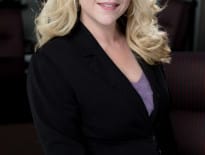With three rate hikes in 2017 and another three – or maybe four – expected this year, competition in the government banking sector is starting to heat up.
Rates are rising and new players all over the state are getting into the space to try to get a piece of the action.
“We are seeing a change with more community banks chasing to get into the municipal space in order to build a deposit base and fund loan growth,” said Justine DeNorscia, director of government banking at Whitinsville-based UniBank, which has its own division solely dedicated to government banking. “You have a much larger percentage of financial institutions chasing the same deposits.”
Municipal depositors are much more rate-sensitive than a typical consumer because of their fiduciary responsibility to the taxpayer. As a result, it is not uncommon to see them looking for higher rates once the federal funds rate begins to jump.
According to DeNorscia, yields on a 12-month certificate of deposit has gotten as high as 1.75 percent.
John Duggan, vice president and government banking officer at Taunton-based Bristol County Savings Bank, said he sees money market accounts for municipal deposits offering anywhere from 65 to 125 basis points. But Duggan did say he recently spoke to one bank offering 2 percent, which he found remarkable for the time.
Arlington’s town treasurer Michael Morse said the town usually looks for returns on CDs and money market accounts of at least 1.45 percent.
“We get calls pretty frequently from banks to get new business or increase our business,” said Morse, who said when he started working in Arlington four years ago, the minimum threshold the town set was below 50 basis points. “I am sure every bank would like us to invest with them.”
Rates Rising Modestly
Despite increases, Duggan said he does not consider the Fed’s actions to have had a huge impact yet, and that rates today are still a far cry from what they were before the financial crisis.
He said rates for bond anticipation notes, a short-term interest-bearing security issued in advance of a larger, future bond issue, have gotten as high as 1.7 percent today. But 10 years ago, those were at 4 percent or 5 percent.
“It doesn’t affect the municipal world too much,” he said, referring to recent rate hikes. “Rates are still at all-time lows.”
Morse said he typically sees a slight bump when the Fed hikes rates; DeNorscia said many banks will raise rates half of what the Fed does.
Ultimately, said Duggan, a healthy local economy is still holding rates down.
Towns are still seeing strong levels of motor vehicle excise taxes, communities are still making capital investments and, according to analysis from The Warren Group, publisher of Banker & Tradesman, petitions to foreclose were down more than 20 percent statewide in 2017, and foreclosure sales were down 8.5 percent.
DeNorscia also said some municipal deposits are more rate-sensitive than others. For instance, towns will be looking for much higher returns on trust accounts for other post-employment benefits, which most towns have amassed huge liabilities for and are under greater pressure to pay down. But short-term funds such as a town’s general fund is less rate-sensitive.
“For general fund money, security is the most important aspect of investing. Any investment has to be fully collateralized and insured with no risk,” Morse said. “With trust funds, you do have a little more latitude on.”
But then some banks with more comprehensive government banking services such as Unibank also offer core banking services such as helping a town manage its payroll, accounts payable and specialized reporting.
Unibank has its own proprietary digital service called Unipay, which allows residents to go online and pay their real estate taxes right into the town’s bank account.
These are much more reliant on relationships and services opposed to just yield.
“We are not chasing the rate money because we offer many other services,” said DeNorscia. “We have 20 people in our department just servicing municipalities.”
More Competition
While rates have increased incrementally, DeNorscia said competition around municipal deposits is rising much more quickly.
She said there are new players all over the state that have recently gotten into the municipal business, such as Adams Community Bank, which last June hired Susan E. Kelley, a government banking veteran and the former treasurer of Lee, Massachusetts, as its senior vice president of government banking.
Banks closer to Boston, such as Blue Hills Bank, that are also putting an added emphasis on the sector. Blue Hills reported in its most recent earnings report that municipal deposits had reached $137 million at the end of 2017, up 32 percent from the end of 2016 and up 188 percent from the end of 2015.
DeNorscia said municipal deposits are attractive right now because many banks are looking to bulk up on deposits and the cost of bringing in municipal deposits might be cheaper than borrowing from the Federal Home Loan Bank.
For example, said DeNorscia, the FHLB borrowing rate was recently 1.59 percent. But many competitors are offering rates on municipal deposits around 1.5 percent, which would make municipal deposits cheaper to fund.
“Municipalities have large budgets and large dollars,” said DeNorscia. “It’s an easy and quick way to raise deposits.”




 |
| 




